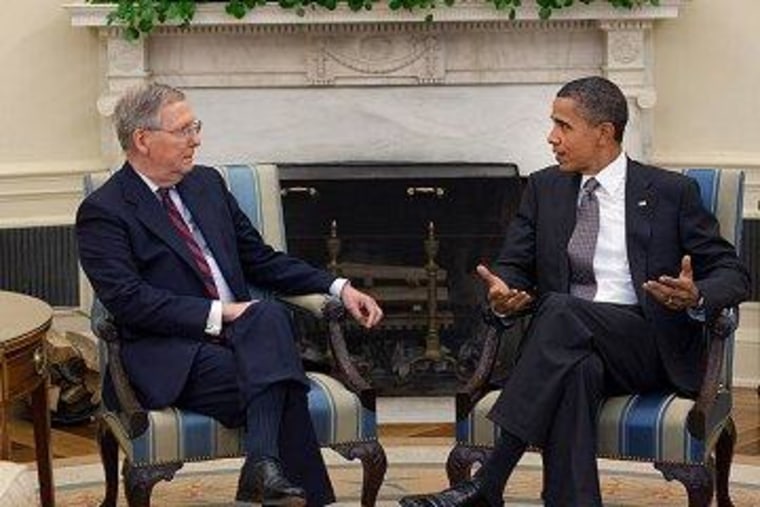Senate Minority Leader Mitch McConnell (R-Ky.), not surprisingly, has no use for President Obama's $4 trillion reduction/economic stimulus plan. Greg Sargent, however, flags the Republican's vision of what a bipartisan agreement would look like.
In an interview in his Capitol Hill office, Mr. McConnell said if the White House agrees to changes such as higher Medicare premiums for the wealthy, an increase in the Medicare eligibility age and a slowing of cost-of-living increases for programs like Social Security, Republicans would agree to include more tax revenue in the deal, though not from higher tax rates. [...]
Mr. McConnell offered his ideas as examples of the structural changes Republicans are looking for. "The nexus for us is: revenue equals genuine entitlement eligibility changes," Mr. McConnell said.
If this sounds vaguely familiar, there's a good reason: it's the blueprint of the plan Sen. Lindsey Graham (R-S.C.) said on Sunday he could support.
What I hope the political world -- policymakers, Sunday show participants, etc. -- will consider as we go into the weekend is how truly baffling McConnell's concept of a "compromise" really is.
Despite an election cycle in which Democrats did very well up and down the ballot, the Senate GOP leader envisions an agreement in which Republicans get the Medicare cuts they want, Republicans get the Social Security cuts they want, and Republicans get the tax rates they want. In exchange, McConnell would give Democrats Mitt Romney's revenue plan.
Seriously.
Sure, President Obama's plan isn't exactly an olive branch, but at least it's a serious effort to reach the goal Republicans established, and it includes policies the White House would not otherwise seek on their own. McConnell's approach is based on a model in which Obama was the one who ended up with 206 electoral votes, instead of 332.
House Speaker John Boehner (R-Ohio) said today the talks are at a "stalemate." I wonder why that is.
